
The State of AI in the Middle East (2025)

.avif)


.avif)
The Middle East, particularly the Gulf region,is undergoing an AI transformation in 2025. From ambitious national AI strategies to billion-dollar infrastructure projects, countries like the UAE, Saudi Arabia, Qatar, and Bahrain are racing to integrate artificial intelligence across their economies. Business leaders and general readers alike are watching this space closely, as AI promises to reshape energy, healthcare, education, and government services across the region. Crucially, Gulf nations see AI as a way to diversify beyond oil dependence and drive new growth. Backed by substantial sovereign wealth and abundant energy resources, these countries are investing heavily in AI, yet they’re also mindful of doing so responsibly, with ethics and talent development in focus. In this article, we’ll explore current AI developments in 2025 across the Middle East. We’ll look at government-backed AI strategies, major projects, sector applications, partnerships, and how businesses can leverage AI consultancy services to navigate this fast-evolving landscape.

Government support underpins the Middle East’s AI surge. Each Gulf country has outlined an AI roadmap to guide implementation:
The UAE has positioned itself as a regional pioneer with its National AI Strategy 2031, which aims to embed AI across key sectors like healthcare, education, and transportation. In 2017, the UAE made headlines by appointing the world’s first Minister of State for Artificial Intelligence, signaling high-level commitment to AI development. Since then, it launched initiatives such as the Mohamed bin Zayed University of Artificial Intelligence (MBZUAI) – a dedicated AI graduate university – and even opened a new AI research lab in Silicon Valley. The UAE’s long-term vision is to become one of the leading AI nations by 2031, enhancing its geopolitical influence, diversifying the economy, and cementing itself as a tech powerhouse. Recent policy moves also integrate AI deeply into governance; for example, AI is now at the heart of the UAE’s federal government strategy, and Abu Dhabi aims to be the world’s first fully AI-powered government by 2027. Crucially, the UAE leverages strong international ties to accelerate progress – it has forged a robust AI alliance with the United States to secure access to cutting-edge technology and chips. All these strategic moves underscore the UAE’s AI adoption in Gulf countries as not just local automation, but a bid to be a global AI player.
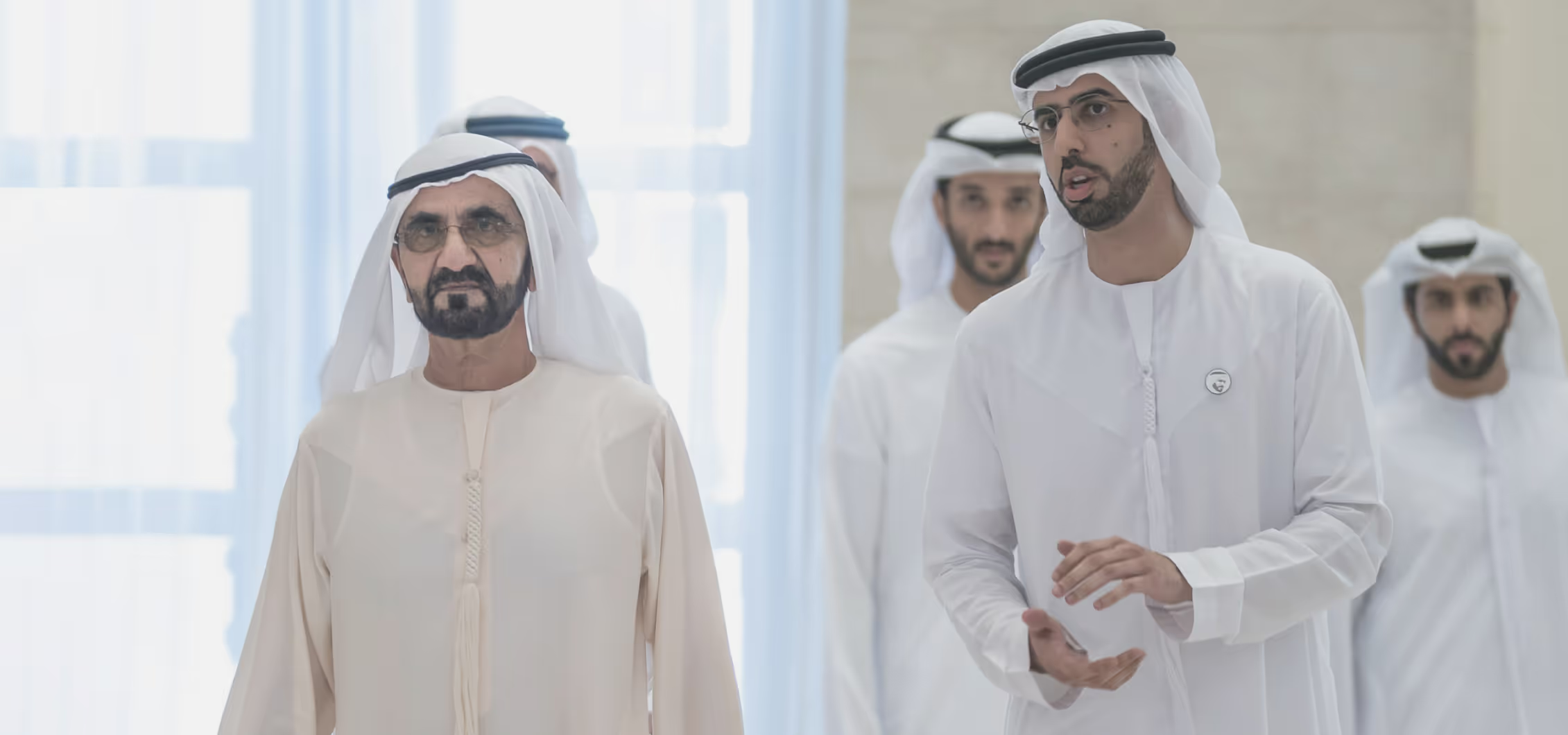
Saudi Arabia likewise views AI as essential to its Vision 2030 economic transformation plan, with officials noting that 70% of Saudi strategic goals involve data and AI. The kingdom established the Saudi Data & AI Authority (SDAIA) to steer AI policy and launched a national strategy to develop AI and data capabilities. In late 2024, Saudi Arabia announced “Project Transcendence,” a $100 billion AI initiative aimed at turning the country into a global AI powerhouse. This unprecedented program focuses on building world-class data centers, supporting AI startups, recruiting top talent, and forging partnerships with tech giants. It aligns with Saudi’s goal to rank among the top 15 AI countries by decade’s end and even become an exporter of AI solutions by 2030. Already, Saudi Arabia has set targets like creating 300 AI-driven startups and attracting $20 billion in AI investments by 2030. Policy frameworks are also evolving: SDAIA has published an AI Adoption Framework to guide responsible AI integration across sectors, alongside guidelines for ethical use (e.g. recent Generative AI Guidelines for government and private sector). In short, Saudi Arabia’s leadership views AI as a pillar of its post-oil economy – and is backing that vision with bold programs and regulatory oversight.
Qatar may be smaller, but it has big AI ambitions tied to its National Vision 2030. Qatar released a National Artificial Intelligence Strategy in 2019 with six pillars – education, data access, employment, business, research, and ethics – to ensure a holistic AI ecosystem. This strategy emphasizes developing homegrown AI applications while preparing society to adopt AI in line with local needs and values. As of 2025, Qatar is actively updating and expanding this plan. The government has committed significant funding – roughly $2.5 billion for data and AI initiatives under its “Digital Agenda 2030”, plus an additional $2.4 billion investment package to boost AI capabilities and attract global tech talent. These investments are catalyzing growth: Qatar’s AI market, estimated at $31 million in 2022, is growing about 17% annually and projected to approach $60 million by 2026. Qatar was one of the early Gulf states (along with the UAE and Saudi) to launch a national AI plan even before generative AI hype hit, and it remains at the forefront of regional AI innovation. Officials indicate the strategy will be updated to meet rising AI demand and new trends. Notably, Qatar stands out for aligning AI development with global best practices – it’s aligning regulations with U.S./EU standards and even introduced legally binding AI guidelines (for financial institutions via the central bank) to ensure proper oversight. This balanced approach – fostering innovation while guarding ethics – typifies Qatar’s AI journey as a “digital pioneer” in the Gulf.
Bahrain has taken a more incremental but principled approach to AI adoption. In July 2025, Bahrain launched a National Policy on Artificial Intelligence focused on ethical innovation and digital transformation. This policy rests on four pillars: legal compliance, responsible AI use, public education, and international cooperation. It aligns with Bahrain’s data protection laws and even incorporates a GCC-wide ethical AI charter, reflecting a strong emphasis on privacy, fairness, and transparency. Bahrain’s leaders stress “responsible and secure use of AI to drive economic and social growth, while improving government efficiency". In practice, Bahrain is encouraging government agencies to integrate AI into public services in a practical, regulated way – unifying AI initiatives under common guidelines. Beyond policy, Bahrain is breaking new ground in regulation: it has proposed a draft Artificial Intelligence Regulation Law (introduced April 2024) that would establish an AI governance unit, licensing for AI systems, liability rules, and even penalties for misuse. If enacted, it would be the first AI-specific law in the region, underscoring Bahrain’s intent to lead on AI governance. While Bahrain’s AI market and investments are smaller than its larger neighbors, these moves ensure it punches above its weight by fostering trustworthy AI implementation. As evidence of regional standing, Bahrain scored 56.13 in Oxford Insights’ 2023 AI Readiness Index – behind UAE, Saudi, and Qatar, but on par with global trends and poised to improve. The kingdom’s focus on ethics and collaboration (for instance, spearheading a GCC AI ethics initiative in coordination with UNESCO) may well serve as a model for others in managing AI’s risks.
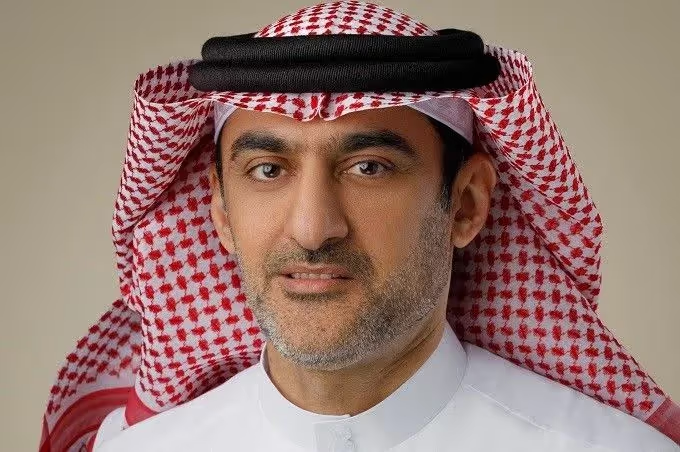
Overall, Gulf governments are actively championing AI adoption. From the UAE’s visionary 2031 strategy to Saudi’s mega-fund, Qatar’s integrated planning, and Bahrain’s policy safeguards, the message is clear: AI is a national priority. These blueprints also highlight opportunities for AI strategy consulting, businesses and agencies often seek expert guidance to align with national AI plans, comply with new regulations, and identify high-impact use cases.
The Middle East’s AI ambitions are tangible in the form of massive projects and infrastructure investments. In 2025, the region is witnessing an unprecedented build-out of AI and cloud computing infrastructure.
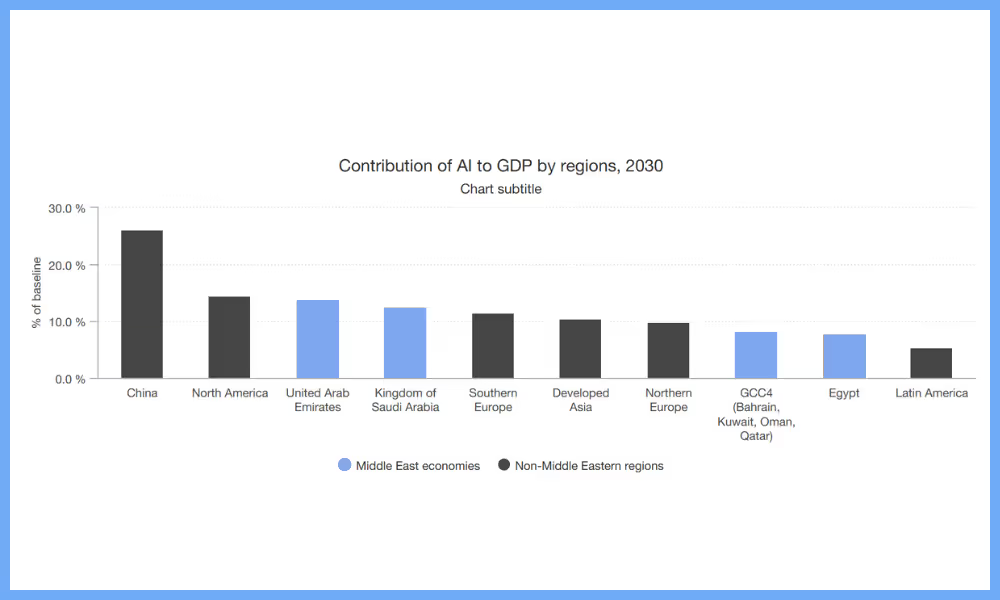
Because modern AI requires immense computing power, Gulf states are pouring resources into data centers and cloud infrastructure. Saudi Arabia and the UAE are racing to build some of the world’s largest data center clusters. As of early 2025, Saudi Arabia had about 300+ megawatts of existing data center capacity, slightly ahead of the UAE’s ~250 Mw. But in terms of planned future capacity, Saudi far outstrips its neighbor: Saudi Arabia is on track for 2,200 MW of new capacity vs. around 500 MW for the UAE. In other words, Saudi Arabia’s upcoming projects are expected to create over four times the data center power of the UAE’s pipeline, positioning the kingdom for long-term AI infrastructure dominance. This includes large-scale “hyperscale” facilities to support cloud services and AI model training. The arms race in AI infrastructure is fueled by an important reality – the Middle East has what big data centers need: plenty of energy and capital. As analysts noted, with about $5 trillion in sovereign wealth combined, Gulf states have the financial means to become serious contenders in AI and data centers. Ample land and cheap electricity (including growing renewable energy capacity) further enable this growth. However, building a true AI ecosystem is not just about hardware – it requires software, talent, and time, so these investments are just the foundation for future innovation.
Saudi Arabia is aggressively courting tech giants and funding new ventures to establish itself as an AI hub. In 2023–2025, a series of headline-grabbing deals were announced: Google Cloud partnered with Saudi’s Public Investment Fund (PIF) to invest $10 billion in a new cloud and AI hub in Saudi. Amazon’s AWS teamed up with Saudi’s HUMAIN (a PIF-backed AI company) on a $5 billion “AI Zone” to spur advanced AI services, on top of AWS’s earlier $5.3B commitment for a local cloud region. Oracle pledged $14 billion to develop cloud and AI infrastructure in the Kingdom over the next decade. Meanwhile, Equinix (a global data center firm) is building a $1 billion data center in Saudi to meet surging demand. And Saudi’s own entities are investing heavily: for example, HUMAIN plans a $10 billion venture fund to fuel AI startups. These projects complement Project Transcendence ($100B), which will channel funds into data centers, startups, and talent (often via co-investments with tech companies). The focus isn’t just capacity for its own sake – Saudi leaders want these investments to anchor a domestic AI industry, attract global partners, and ensure the country has the computing “horsepower” to develop frontier AI models down the line. Notably, part of Saudi’s strategy is to localize tech capabilities: deals include developing Arabic-language AI models with Google’s help (to serve Arabic speakers with AI tools) and exploring semiconductor partnerships (though Saudi and the UAE are also eyeing local chip manufacturing to secure supply chains). In short, Saudi Arabia is spending and partnering at an unprecedented scale to make the kingdom a go-to destination for AI innovation.

The UAE, for its part, has announced landmark projects to bolster AI infrastructure. During a high-profile diplomatic visit in 2025, the UAE and US agreed to build the world’s largest AI-focused campus outside of the US – a 26 sq km site in Abu Dhabi that will house 5 gigawatts of data center capacity when complete. This “AI campus” will be developed with help from OpenAI, Oracle, NVIDIA, and Cisco, among others, and an initial 200 MW cluster is slated to go live by 2026. Such a project is a game-changer: it guarantees the UAE access to NVIDIA’s latest AI chips and advanced American technology, giving Emirati researchers and companies the tools to train large-scale AI models at home. In fact, the first phase of the Abu Dhabi mega-center is expected to deploy 100,000 NVIDIA chips including the cutting-edge AI servers (Grace Hopper systems), massively boosting the UAE’s compute capacity. This will accelerate the UAE’s ability not just to use AI, but to create and export new AI applications across sectors like healthcare, energy, and finance. What sets the UAE apart, analysts note, is how it pairs this compute power with low-cost renewable energy (solar farms) and high-speed connectivity – giving it a sustainable edge for running AI workloads at scale. Beyond the AI campus, the UAE has seen a flurry of investments: Abu Dhabi launched “MGX,” a state-backed AI fund aiming to invest $100 billion in AI chips and tech globally. One of MGX’s first projects is “Stargate” – an AI supercomputing hub in the UAE (with OpenAI, G42, Microsoft, and others) that plans a 1 GW data center cluster (200 MW by 2026). Additionally, Abu Dhabi’s government is investing $3.5+ billion to automate all government services between 2025 and 2027. Major cloud providers are also expanding in the UAE’s market, drawn by its pro-innovation environment. Together, these efforts reflect the UAE’s determination to remain at the cutting edge of AI infrastructure, supporting its goal to be a global AI hub.
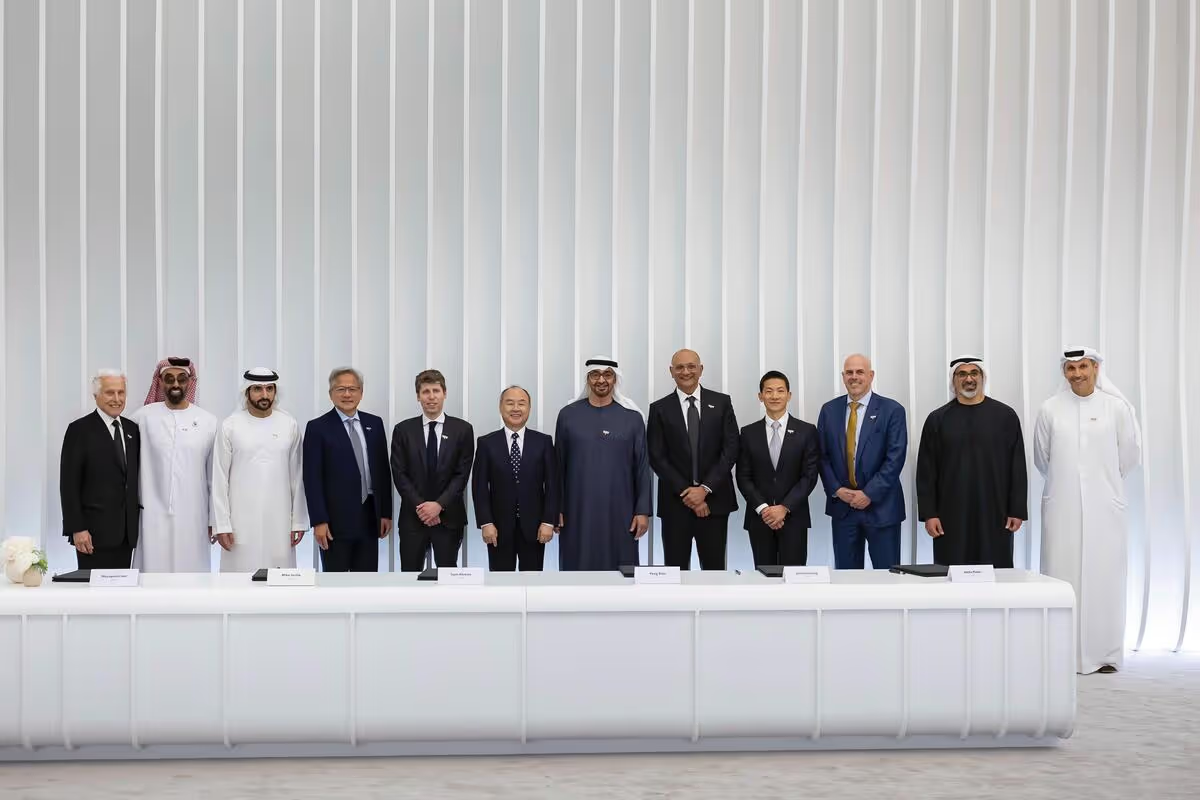
Qatar is also ramping up its digital backbone, albeit with a targeted approach. Qatar’s AI strategy prioritizes data center development and data management capabilities, recognizing that data is the lifeblood of AI. While Qatar’s data center market is smaller than Saudi’s or the UAE’s, its investments are significant for its size. Microsoft and Google have both opened cloud data centers in Qatar, expected to generate a combined $35.9 billion in new revenue for Qatar’s economy. This not only reflects big tech’s confidence in Qatar’s market, but also provides local companies and government with world-class cloud AI services (with data residency inside Qatar). The country is also developing smart infrastructure like Lusail City, a futuristic smart city that relies on massive data and AI-driven systems for sustainability and automation. To support such ambitions, Qatar is ensuring access to advanced hardware: for example, Qatar’s telecom leader Ooredoo struck a partnership with NVIDIA to bring thousands of NVIDIA’s AI chips to its data centers. Instead of trying to manufacture semiconductors domestically, Qatar opts to secure global partnerships for cutting-edge tech – a pragmatic move to avoid the cost and complexity of local chip fabs. This means Qatar can tap the latest AI accelerators for its projects without delay. Overall, Qatar’s investments may not make global headlines, but they’re strategically unlocking capacity per capita – one analysis suggests that thanks to steady growth, Qatar could end up second only to the UAE in data center capacity per capita in the GCC. In essence, Qatar is quietly building a strong foundation (cloud infrastructure, data regulations, partnerships) that will enable AI growth in its key sectors.

Other Gulf countries are also contributing to the region’s AI infrastructure landscape. For example, Bahrain hosts an AWS cloud region (opened in 2019) that continues to serve regional demand, and it’s fostering a cloud-friendly business environment. Oman and Kuwait have their own digital transformation plans, with Oman finalizing a National AI Policy to guide future projects. Across the board, Gulf governments are courting investments to ensure they have local access to AI computing power. The gulf-wide AI adoption is further evident in projections: the GCC’s AI market is expected to grow from roughly QAR 12.4 billion in 2024 to QAR 56.3 billion by 2030 (approx. $3.4B to $15.5B), a nearly 28.6% CAGR. By 2030, AI could contribute an estimated 7% to the region’s combined GDP. These numbers underscore why infrastructure matters – to capture that value, the Middle East needs the computing muscle and digital networks for AI, which it is rapidly building.

AI infrastructure and projects in the Middle East are booming, from giant data centers and cloud regions to smart cities and AI research facilities. For businesses in the region, this translates into unprecedented access to AI resources. It also presents choices that AI consultancy firms can help navigate: e.g. which cloud or data platform to use, how to leverage national AI hubs like Abu Dhabi’s campus or Saudi’s upcoming AI Zone, and how to ensure one’s data strategy aligns with this new infrastructure landscape.
One reason Middle Eastern governments are so bullish on AI is its transformative potential across critical sectors. By 2025, AI pilots and projects are underway in energy, healthcare, education, and public services – areas that directly impact economic diversification and quality of life. Let’s look at how AI is being implemented in these sectors.
The Gulf’s prosperity has long been tied to energy, so it’s no surprise AI is making inroads here. Oil and gas companies are deploying AI for predictive maintenance, optimizing production, and safety. For instance, sensors at drilling sites feed AI systems that predict equipment failures before they happen, minimizing downtime. AI models also analyze seismic data to improve exploration success. Importantly, as countries pivot to renewables and efficiency, AI helps manage power grids and solar farms under extreme climate conditions. The UAE’s strategy explicitly targets energy as a priority sector for AI adoption. In Saudi Arabia, energy giants like Aramco are investing in AI to streamline operations and reduce costs, aligned with Vision 2030’s goal of a smarter, greener energy industry. Moreover, AI-powered data analytics are used to forecast energy demand and optimize fuel supply chains across the region. By injecting intelligence into the energy sector, Gulf states aim to extend the life of their hydrocarbon revenues while advancing sustainability goals. The end result is a more resilient energy sector – one that can do more with less, thanks to AI-driven insights. This trend also opens opportunities for AI services in the Middle East focused on energy analytics and strategy consulting for energy firms undergoing digital transformation.

Healthcare in the Middle East is being revolutionized by AI, often via public-private partnerships. A prime example is the partnership between Abu Dhabi’s G42 Healthcare and the US-based Cleveland Clinic to drive AI-powered medical innovation. This collaboration creates joint task forces to apply AI in patient care, medical research, and hospital operations – aiming for better diagnoses, personalized treatments, and streamlined workflows. Across the region, AI is used in medical imaging (AI algorithms that can detect diseases from X-rays or MRIs faster and sometimes more accurately), telemedicine (AI chatbots triaging patients or virtual health assistants), and drug discovery (using AI models to find new therapeutic compounds). For instance, during COVID-19, several Gulf countries used AI for monitoring outbreaks and optimizing vaccine distribution. Governments also see AI as a way to enhance public health: the UAE and Saudi Arabia are exploring AI-driven predictive analytics to identify health trends and allocate resources efficiently. Notably, Arabic-language health chatbots and symptom checkers are being developed to serve local populations in their native language – a direct result of projects to build Arabic AI models like the UAE’s Falcon system. In Qatar, healthcare is one of the strategic priority areas for AI deployment, as noted in its national strategy and Asia House analysis. All these efforts point to a future where AI is embedded in patient journeys, augmenting doctors and improving outcomes. For businesses and hospitals, adopting AI can be complex – this is where AI implementation experts (often consultancy services) come in, to integrate AI tools with existing healthcare IT systems and ensure staff are trained to use them.
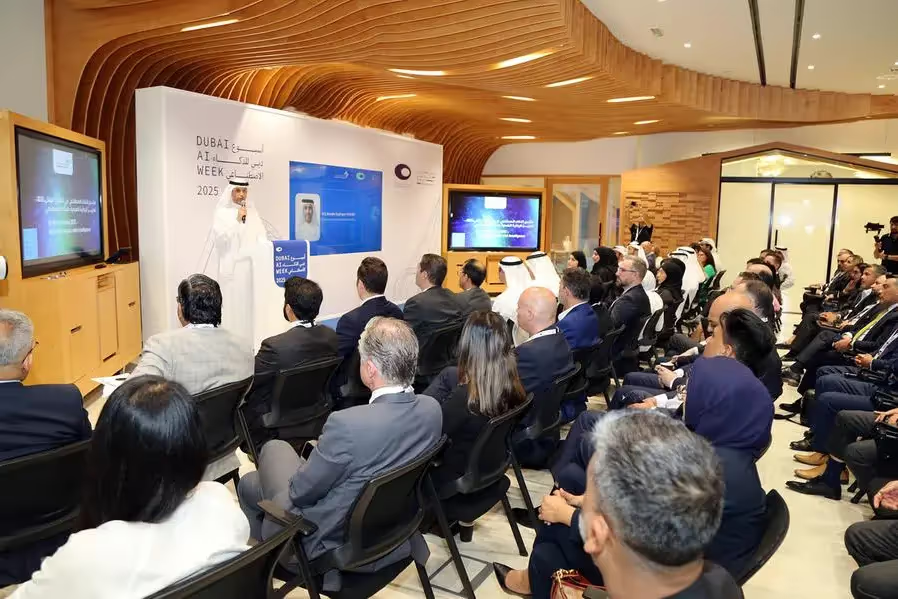
Preparing the next generation for an AI-driven world is a common theme in the Gulf. The UAE recently made headlines by introducing AI studies in schools from kindergarten through grade 12 as part of a national plan to foster future-ready skills. The idea is to weave AI concepts (like coding, machine learning basics, and ethical use of technology) into curricula, so that students graduate AI-literate. Similarly, Saudi Arabia and Qatar have programs to promote STEM and AI learning – Qatar’s national AI strategy emphasizes education as its first pillar, aiming to include AI in academic programs and train specialists. Beyond K-12, universities and research institutes are expanding AI offerings. The UAE’s MBZUAI is one dedicated example, but many universities across the region now host AI labs or offer AI degrees. Governments are also backing national skilling initiatives: Qatar’s “National Skilling Program” is training 50,000 people in AI and data science by 2025 (from students to mid-career professionals), and the UAE announced plans to train 10,000 individuals in AI skills by 2030 in partnership with industry. These initiatives address the talent gap by developing home-grown AI expertise, reducing reliance on expatriate specialists over time. On the technology side, AI is entering classrooms through personalized learning platforms – for example, adaptive learning software that uses AI to tailor lessons to each student’s pace. Some Gulf schools are experimenting with AI tutoring bots for extra help in subjects like math or language learning. Education ministries are also using AI analytics to identify schools needing support or to better design curricula based on learning outcome data. All told, education is both a target of AI innovation (making learning smarter) and a means to sustain the AI revolution (by nurturing talent). This dual role makes it a high priority for policymakers and a rich field for ed-tech solution providers.
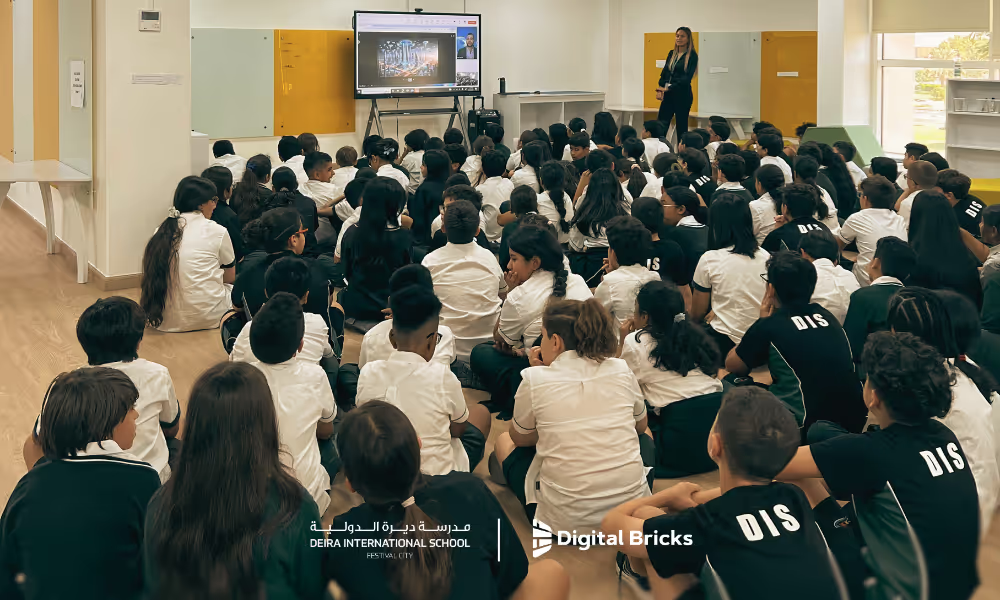
Perhaps the most visible impact of AI in daily life will come from its use in public services and smart city initiatives. Gulf governments are investing in AI to enhance everything from transportation and security to administrative services. In Dubai and Abu Dhabi, for instance, AI-enabled services include intelligent traffic management (using AI to optimize signal timings and reduce congestion), municipal chatbots that handle resident inquiries 24/7, and facial recognition for secure, paperless airport immigration checks. The Abu Dhabi government’s goal to be fully AI-powered by 2027 means integrating AI into all aspects of governance – e.g., AI systems to process paperwork, detect fraud, allocate budgets, and improve citizen services. The UAE already launched an AI-powered budgeting system to better align spending with strategic priorities. In Saudi Arabia, initiatives like the NEOM smart city and various e-government programs rely on AI for city planning, surveillance, and personalized e-services for citizens. Qatar’s smart nation efforts (e.g. Tasmu Smart Qatar program) likewise deploy AI in sectors like transportation (smart public transit), logistics, and public safety. Even everyday services like license renewals or utility management are being enhanced by AI-driven automation and chatbots in some Gulf states. Bahrain, as noted earlier, is working to systematically integrate AI in public services while ensuring proper governance. The common thread across these examples is the concept of “smart government” – using AI and data to make government more efficient, transparent, and responsive. For the public, this could mean faster services (no more standing in long queues at government offices) and more personalized interactions (services anticipating your needs). For the governments, AI promises cost savings and better policy outcomes through data-driven decisions. However, implementing AI at such scale is complex; success depends on robust IT infrastructure, inter-agency data sharing, and public trust. Consequently, authorities often collaborate with technology partners and consultants to design these AI systems. It’s a prime area where AI strategy consulting helps – ensuring that technology solutions align with policy goals and that ethical considerations (like privacy and bias) are addressed upfront. Notably, Gulf countries are also working together on common standards – e.g., the GCC’s joint Guiding Manual on AI Ethics helps align all member states on principles for AI use in government.
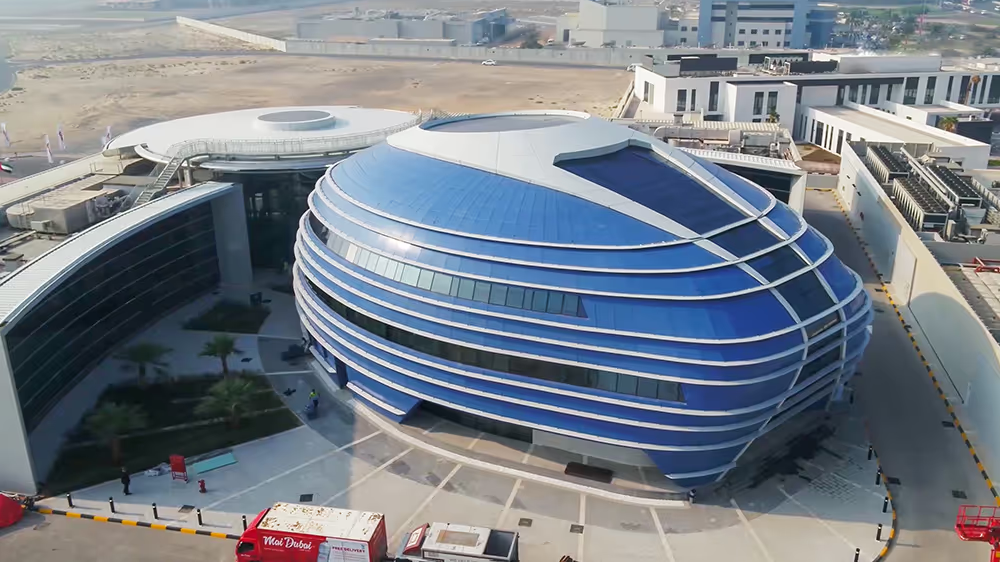
In each of these sectors, 2025 has brought concrete AI implementations in the Middle East that were only aspirational a few years ago. Energy companies are optimizing operations with AI; hospitals are partnering with tech firms for AI research; classrooms are introducing AI concepts to kids; and governments are rolling out AI-enhanced services. This AI adoption in Gulf countries is fueled by strong government direction, but it also creates a vibrant market for private-sector innovation and expert guidance. Companies offering AI services in the Middle East are helping customize global AI solutions to local needs – whether that’s training Arabic language models for healthcare, or building predictive models for desert solar farms. And as these sectors continue to mature with AI, expect the lines between them to blur (for example, smart cities integrate energy, transport, and public services holistically, all underpinned by AI).
The Middle East’s AI rise isn’t happening in isolation – it’s the product of active partnerships and institution-building. Governments are working closely with private tech companies, and new research and talent hubs are popping up to support the ecosystem.
Realizing that expertise in AI often lies with global tech firms, Gulf nations have struck partnerships to import knowledge and co-develop solutions. We’ve mentioned several big investments (Google, Microsoft, Amazon, Oracle, Cisco, NVIDIA, IBM, and others) – many of these come with strategic collaboration agreements. For example, Google’s $10B partnership in Saudi Arabia isn’t just capital – it involves Google helping train Saudi engineers and developing Arabic NLP (Natural Language Processing) models locally. Similarly, IBM is working with airlines like Riyadh Air to infuse AI into aviation, and with Saudi Aramco on AI in energy. Cisco announced in 2025 new initiatives in the Gulf, extending its partnership with UAE’s G42 and joining Saudi’s HUMAIN alliance, to ensure secure and scalable AI infrastructure is built with global best practices. As Cisco’s CEO Chuck Robbins remarked during a regional tour, “The Gulf region’s AI revolution is truly impressive, and Cisco is proud to play a key role in ensuring it is implemented intelligently, securely, and with trusted partners to drive maximum value for governments, businesses, and consumers.”. These words highlight how critical public-private partnerships are: governments bring vision and funding, companies bring technology and know-how – together they accelerate AI adoption. For local businesses, such alliances often mean access to new AI platforms and services sooner. Also, the presence of global tech companies in the region (through local offices, data centers, and innovation centers) creates spillover benefits like supplier opportunities and workforce training.
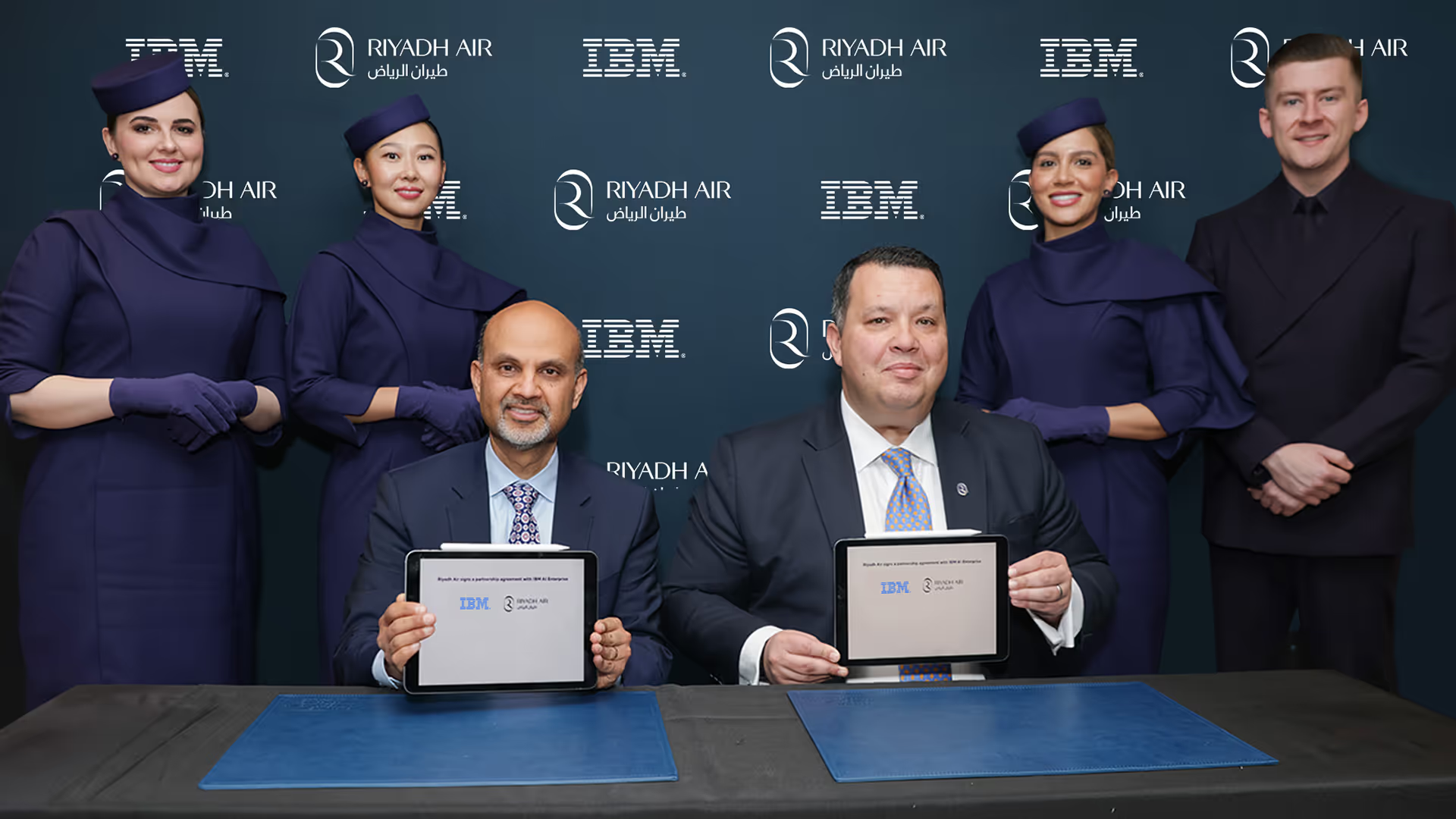
Alongside foreign partners, the Middle East is cultivating its own AI champions. The UAE’s G42 is a prime example – a conglomerate focusing on AI and cloud, which has units working on healthcare AI (M42), space AI (Space42), and more. G42 has drawn international attention by investing in firms like OpenAI and Elon Musk’s xAI, and by building top-tier infrastructure (it’s the driving force behind the 5GW AI campus, using supercomputers built by Cerebras Systems). Saudi Arabia’s HUMAIN is another local player to watch, envisioned as a national champion in AI that will not only build infrastructure but also develop AI software and services for the region. On the research front, the Mohamed bin Zayed University of AI (MBZUAI) in Abu Dhabi is the world’s first graduate university focused on AI – it’s attracting global faculty and students, producing research, and recently opened a lab in Silicon Valley to bridge ties with the global AI community. MBZUAI researchers also created Falcon, a powerful large language model in Arabic, demonstrating that the region can lead in AI R&D for its own languages. In Saudi Arabia, centers of excellence in AI are being established at universities like KAUST and through SDAIA’s research programs; the country has reportedly developed some advanced language models internally (akin to ChatGPT level) to experiment with cutting-edge AI. Qatar Computing Research Institute (QCRI), founded in 2010, laid early groundwork by focusing on AI and computing challenges relevant to Qatar and the Arab world. QCRI’s proposals even helped shape Qatar’s national AI strategy. These institutes and companies serve as innovation hubs, training talent and driving locally-relevant AI advancements (e.g., better Arabic speech recognition, AI for desert agriculture, etc.). Crucially, they also act as magnets for regional talent, offering roles that previously only existed in Silicon Valley or other tech centers.
All Gulf states recognize that sustainable AI growth depends on human capital. High-tech infrastructure is useless without skilled engineers, data scientists, and researchers to leverage it. Thus, talent development is a cornerstone of regional AI strategies. We discussed how AI education is being introduced at all levels – but there are also targeted programs for upskilling and attracting talent. For instance, Saudi Arabia’s Project Transcendence explicitly aims to recruit top AI talent from around the world and incentivize foreign AI companies to set up in the Kingdom. The UAE regularly runs hackathons, incubators (through Hub71 in Abu Dhabi or Dubai Future Accelerators) to spur local AI startups and hone talent. The “One Million Arab Coders” initiative (launched by Dubai) has offered free programming training, indirectly supporting AI skill development among Arab youth. Qatar’s national AI committee works with industry to identify skill gaps and offer specialized training for government employees on AI tools. Moreover, partnerships with companies often include a knowledge transfer component – e.g., Microsoft and Oracle have cloud academies in the region to certify professionals on AI and cloud technologies. Another approach is importing education: the UAE, for example, partners with international institutions (like a recent collaboration to establish an AI research lab by University of Florida in Dubai, hypothetically). Gulf governments also provide generous scholarships for students to pursue AI-related degrees abroad, on the condition that they return and contribute to local industries. Finally, immigration and visa policies are being tweaked – the UAE and Saudi Arabia have introduced special long-term visas for tech professionals (aiming to lure AI experts to relocate). All these efforts tie back to a simple truth: without enough qualified people to implement AI solutions, the lofty strategies cannot succeed. So far, progress is promising – the Middle East’s talent pool in AI is growing, though demand still outpaces supply, which is why AI consultancy firms (who bring their own experts) remain in high demand.

Another noteworthy trend is how Gulf countries collaborate on AI despite their race to lead. They frequently share knowledge and set common principles through forums and summits. For instance, Saudi Arabia hosted the Global AI Summit 2024 in Riyadh (following an inaugural summit in 2020), bringing together leaders from across the GCC and world. During that event, Bahrain spearheaded a GCC AI Ethics initiative (with UNESCO’s support) to harmonize ethical guidelines regionally. The Gulf states understand that issues like AI ethics, regulation of AI applications, and cross-border data flows benefit from a unified approach. The existence of a GCC AI Guiding Manual on Ethics – which Bahrain’s new policy references – is one product of such collaboration. We also see joint investments: the AI Infrastructure Partnership (AIP) mentioned in Cisco’s news involves players from multiple countries (BlackRock, Microsoft, NVIDIA alongside Abu Dhabi’s MGX and others) pooling funds to invest in AI infrastructure globally. It underlines that the Gulf is not just looking inward, but also aiming to shape AI developments beyond its borders by leveraging its capital in international partnerships. Additionally, there’s healthy competition that spurs better policies – e.g., when the UAE introduced its AI minister and strategy, it likely nudged others to accelerate their plans; Saudi’s ambitious targets in turn push the UAE to announce even bigger projects, and so on. For businesses operating region-wide, this collaborative yet competitive environment is a boon, it means more forums to exchange ideas (like the MENA AI Summit, upcoming World Summit AI in Qatar 2025, etc.), more consistent regulations across countries, and government support when expanding AI solutions from one Gulf market to another.
The Middle East’s AI ecosystem is increasingly dynamic and well-supported. Strong public-private partnerships ensure that AI solutions are not developed in a vacuum – they address real needs and have resources for deployment. Research hubs and universities in the region are nurturing innovation tailored to local contexts (such as Arabic language AI, climate-specific tech, and solutions for public sector needs). Talent development pipelines are being put in place to supply the next generation of AI engineers and analysts. And a spirit of collaboration (through summits and joint initiatives) is helping the region collectively raise its AI readiness. All these factors mean that any company or government agency in the Middle East looking to adopt AI has a network of support to draw on – be it consulting expertise, academic research partners, or government incentives.
For businesses in the Middle East, the current AI wave presents both exciting opportunities and strategic challenges. On one hand, they can harness cutting-edge AI tools (often with government backing) to transform their operations and unlock new value. On the other hand, navigating the fast-evolving AI landscape (with its myriad technologies, policies, and talent constraints) can be daunting. This is where AI consultancy and strategy consulting services come into play as invaluable partners.
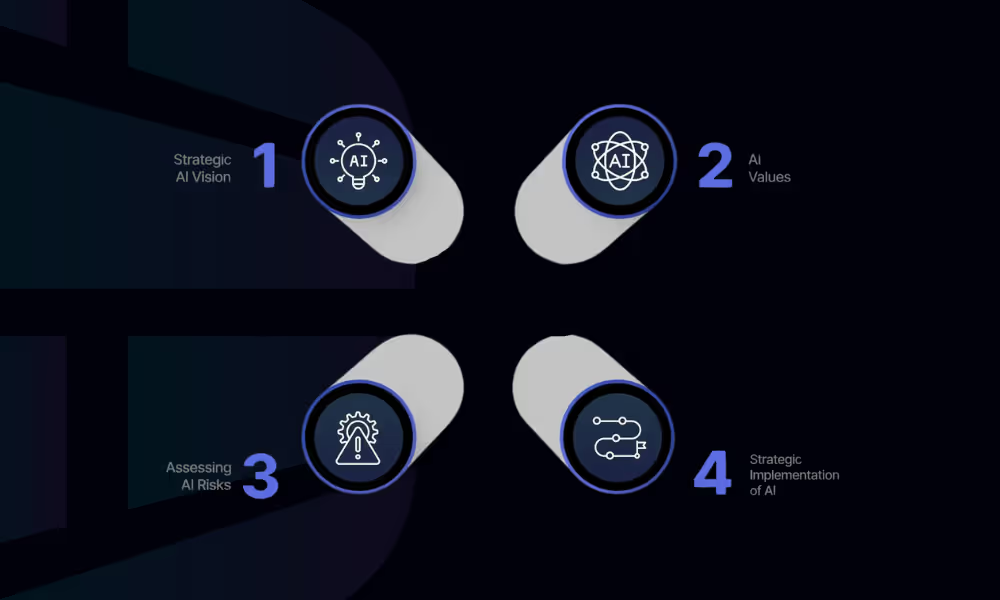
Many organizations know they should be doing something with AI, but might be unsure where to start or how to align AI with their business goals. AI consultants can conduct assessments to identify high-impact use cases in a given company – for example, using AI for demand forecasting in retail, or predictive maintenance in manufacturing. They also help in devising an AI implementation roadmap, ensuring early projects deliver quick wins and build internal confidence. In the Gulf, where government strategies set broad national AI agendas, businesses often need to interpret what those mean for their sector. Consultants with regional insight can bridge that gap, tailoring global AI best practices to local market conditions and regulations (“AI strategy consulting” in the Middle East context often involves aligning with national visions like Saudi’s Vision 2030 or UAE’s Sector Priorities). Furthermore, consultants help in vendor selection – given the influx of AI platforms (Microsoft Azure AI, Google Cloud AI, local players like G42’s stack, etc.), choosing the right technology partners is crucial. By working with experienced AI service providers, a company in say, Dubai or Riyadh, can confidently adopt AI solutions that fit its scale and are compliant with local data laws.
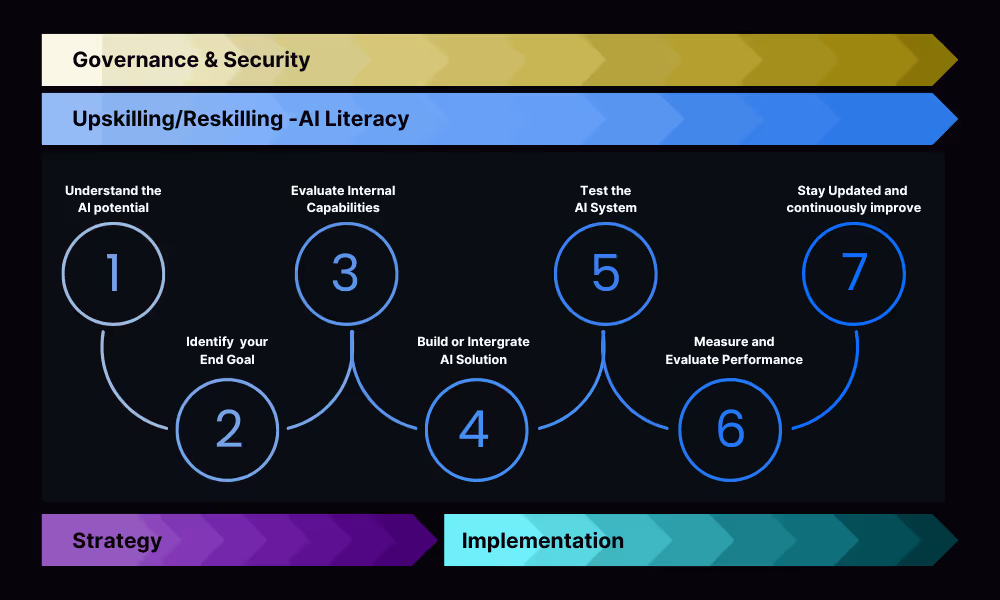
Middle Eastern governments are offering numerous programs (from funding to infrastructure access) to encourage AI adoption. For instance, a UAE business could potentially utilize Abu Dhabi’s upcoming AI super-compute resources, or a Saudi startup might seek investment from SDAIA or a PIF fund geared towards AI. The opportunity here is to piggyback on national AI investments. However, accessing these programs often requires insight into how they work and aligning proposals to government criteria. AI consultants often have up-to-date knowledge on such initiatives (some might even be government-endorsed partners) and can guide businesses in tapping into them. Whether it’s applying for a smart city challenge in Qatar or collaborating with a national research center in Oman, expert guidance can make the difference. Additionally, consultants help ensure that the AI solutions developed are in line with government frameworks – for example, adhering to the ethical AI guidelines and data protection laws that are increasingly mandated (UAE and Bahrain’s emerging laws, Qatar’s binding guidelines for certain sectors, etc.). In short, consultancies serve as a conduit between the public sector’s AI ecosystem and private sector needs, making sure businesses don’t miss out on incentives or run afoul of regulations.
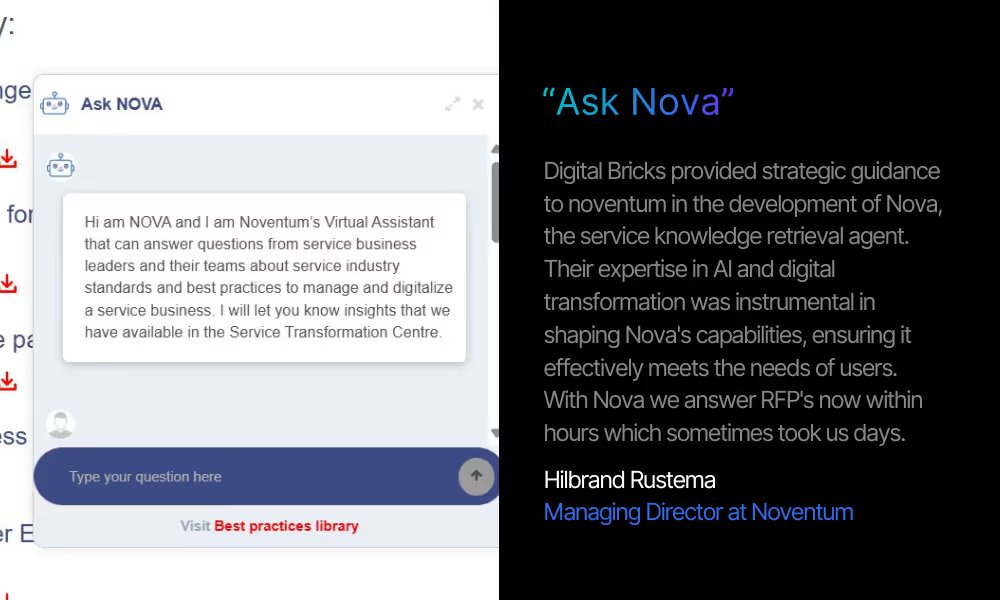
With AI’s power comes the responsibility to use it ethically and securely. Businesses must consider data privacy (especially with new data protection laws in Saudi, Dubai, etc.) and avoid biases in AI decisions. They also need robust cybersecurity for AI systems. Consulting firms are increasingly offering AI governance service, helping clients set policies for AI usage, conducting algorithm audits, and establishing controls to ensure AI results are explainable and fair. For example, a bank in Bahrain adopting AI credit scoring would benefit from guidance on complying with the Central Bank’s AI guidelines and ensuring non-discrimination. Consultants can incorporate frameworks like the UAE’s AI Ethics Principles or Bahrain’s forthcoming AI law into a company’s AI strategy by design. In addition, as AI systems become critical to operations, change management is key – employees need to trust and understand the AI tools. Consulting experts often facilitate this through workshops and iterative deployment (so employees see AI as assisting, not replacing them). Ultimately, successfully implementing AI is not just a tech challenge but a human one; having seasoned advisors increases the odds that AI adoption will stick and deliver ROI, rather than fizzle out after a proof-of-concept.
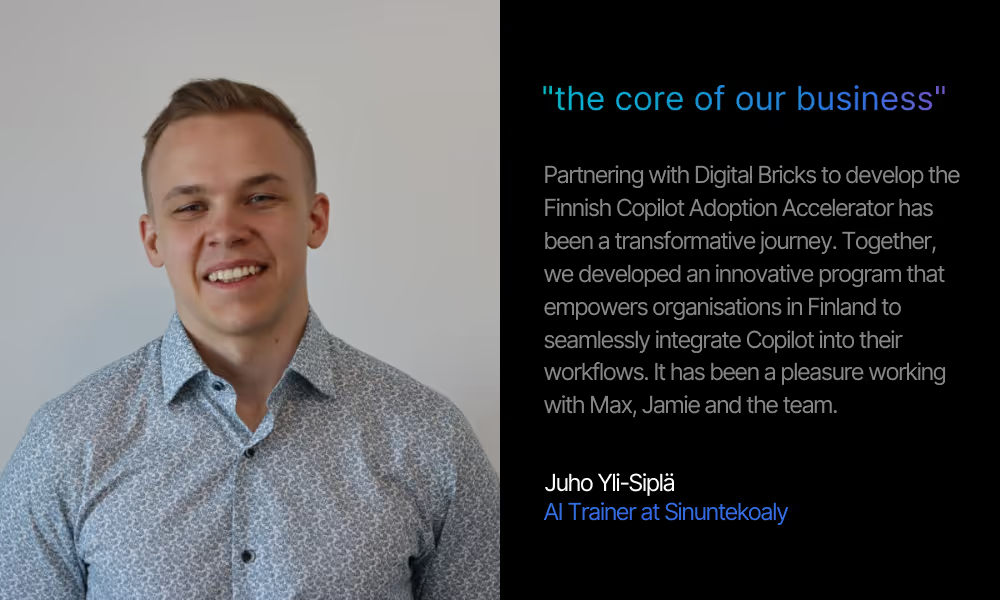
In the Middle East’s competitive environment, businesses that leverage AI smartly stand to gain a significant edge. Whether it’s an oil company improving yield, a hospital improving patient outcomes, or a retailer personalizing customer experience, AI can be a game-changer. The region’s leadership knows this – hence the strong push for AI everywhere. For the business community, the prudent step is to ride this wave with the right support. AI consultancy services offer that support, from high-level strategy down to technical implementation, all contextualized to the Middle Eastern market. By partnering with experts, companies can more rapidly transition from pilot projects to full-scale AI transformation, ensuring they remain competitive as the Gulf economies reinvent themselves in the AI era.
As of 2025, the state of AI in the Middle East is vibrant and fast-evolving. The UAE and Saudi Arabia are often cast as friendly rivals, each vying to be the region’s undisputed AI leader – the UAE with its early start and international collaborations, and Saudi Arabia with its sheer scale of investment and bold initiatives. Qatar and Bahrain, while smaller, are carving out niches that play to their strengths: Qatar in data-centric development and global standards alignment, and Bahrain in regulatory innovation and ethical AI stewardship. Other neighbors like Oman and Kuwait are not far behind, working on their own strategies and benefiting from the momentum created by the leading trio.
A notable development is the increased regional cooperation on AI matters. The Gulf countries, through GCC platforms, are sharing knowledge and even resources. We see joint endeavors like the GCC AI ethics guidelines and discussions on unified AI regulations to ease doing business across borders. There’s also talk of Gulf-wide AI research collaborations – for instance, a regional AI research fund or a network linking universities’ AI labs, which could materialize in coming years. Annual events (e.g., AI summits hosted in Riyadh, Doha, or Dubai) ensure continuous dialogue among policymakers, private sector leaders, and researchers, fostering a sense of community and common purpose in advancing AI for regional prosperity. The broader Middle East-North Africa (MENA) region is influenced by what happens in the Gulf. Already, countries like Egypt, Jordan, and Morocco are learning from GCC experiences and launching their own AI initiatives (often with support from Gulf investors or partnerships forged at regional forums). The Gulf’s success in AI could have a ripple effect, positioning the Middle East as an emerging global AI hub that bridges East and West – a role Middle Eastern financial centers played in banking might now extend to technology and AI.
Of course, challenges remain on the horizon. Developing local talent fast enough is a race against time; retaining that talent in the face of global competition will require continued investment in quality of life and research opportunities. Ensuring that AI is used responsibly – avoiding misuse of AI surveillance or algorithmic bias that exacerbates social inequalities – will test regulators’ agility. And the volatile global tech landscape (geopolitical tensions affecting tech trade, global AI competition between superpowers) means Middle Eastern countries must be nimble in navigating international partnerships. For example, changes in US export policies on advanced chips could impact regional projects, as hinted by recent diplomatic negotiations to secure access to NVIDIA chips.
Nonetheless, the trajectory is set. The Gulf nations are all-in on AI, viewing it as a cornerstone of their future economies. Business leaders in the region would do well to stay informed and proactive: those who embrace AI and adapt will thrive in the new era, while those who ignore it risk falling behind. The good news is that support structures – from government grants to a growing pool of AI consultants and services, are in place to assist in this journey.
The state of AI in the Middle East in 2025 is one of optimism, rapid growth, and increasing sophistication. AI strategy consulting in the region has become a vital service, guiding both governments and companies to make the most of AI technologies in line with their vision. With record-breaking projects (like Saudi’s $100B initiative and the UAE’s 5GW AI campus) and strong policy frameworks (like Qatar’s national strategy and Bahrain’s AI law), the Middle East is no longer on the AI sidelines – it’s helping drive the global AI narrative. For a region historically defined by oil, that’s a profound shift. The coming years will reveal how well these ambitious plans translate into tangible benefits, but for now, the Middle East has firmly staked its claim as a rising center of AI innovation and transformation.